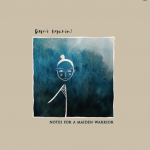 Dani Larkin’s debut record, Notes for a Maiden Warrior is an album in two halves. The first, based around the theme of the Warrior, represents the dark side of the moon. It explores the archetype of Ulster as the warrior province, home to Cú Chulainn and his superhuman abilities. Larkin reinterprets this image in her songs, presenting the warrior’s strength through reflection and resilience. The second half, Maiden, is sleepy and sincere. It plays with ideas of light and feminine energy, showing strength through vulnerability and a celebration of love and kindness. Notes for a Maiden Warrior draws on ancient, otherworldly tales as a study of tenderness, pain and learning. Continue Reading…
Dani Larkin’s debut record, Notes for a Maiden Warrior is an album in two halves. The first, based around the theme of the Warrior, represents the dark side of the moon. It explores the archetype of Ulster as the warrior province, home to Cú Chulainn and his superhuman abilities. Larkin reinterprets this image in her songs, presenting the warrior’s strength through reflection and resilience. The second half, Maiden, is sleepy and sincere. It plays with ideas of light and feminine energy, showing strength through vulnerability and a celebration of love and kindness. Notes for a Maiden Warrior draws on ancient, otherworldly tales as a study of tenderness, pain and learning. Continue Reading…
Archives For Uncategorized
 There’s a moment when you walk down the slope of Ballymully Cottage Farm and you hear music in the bottom field and the heart swoops. Hey, a music festival. In a favourite location. With good bands, in the company of people you care for, in the brief Irish summertime.
There’s a moment when you walk down the slope of Ballymully Cottage Farm and you hear music in the bottom field and the heart swoops. Hey, a music festival. In a favourite location. With good bands, in the company of people you care for, in the brief Irish summertime.
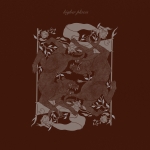 Following on from last year’s release Into the Depths of Hell Joshua Burnside returns with a ‘sister’ album Higher Places which features a collection of B-sides, remixes and demos, all of which suggest a rising up from the darker sound of that original release.
Following on from last year’s release Into the Depths of Hell Joshua Burnside returns with a ‘sister’ album Higher Places which features a collection of B-sides, remixes and demos, all of which suggest a rising up from the darker sound of that original release.
Continue Reading…
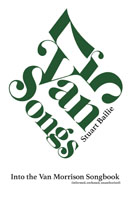 In the 1948 musical Easter Parade, Fred Astaire is a jilted Broadway performer who aims to turn a chorus girl, Judy Garland, into a star. There are big tunes from Irving Berlin, including a title song that is bold enough to rhyme ‘bonnet’ with ‘sonnet’.
In the 1948 musical Easter Parade, Fred Astaire is a jilted Broadway performer who aims to turn a chorus girl, Judy Garland, into a star. There are big tunes from Irving Berlin, including a title song that is bold enough to rhyme ‘bonnet’ with ‘sonnet’.
In the song-and-dance number ‘A Couple of Swells’, the two of them wear battered tops and tails and sing about paying a visit to their millionaire pals, the Vanderbilts, on 5th Avenue. But what mode of transport for these nouveaux pauvres? They cannot afford a car, a horse, a bicycle, let alone a yacht. But happily, they realise, it’s enough to walk up the avenue, in style.
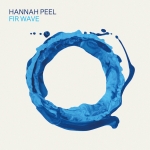 Hannah Peel is no stranger to world-building. Her work is ambitious and future-facing, blending elements of classical composition, contemporary pop and ambient electronics in order to reinvent genre. Staying true to her artist ethos of blending the old with the new, her forthcoming record Fir Wave is a reinterpretation of the work of Delia Derbyshire and the Radiophonic Workshop from ’72. Continue Reading…
Hannah Peel is no stranger to world-building. Her work is ambitious and future-facing, blending elements of classical composition, contemporary pop and ambient electronics in order to reinvent genre. Staying true to her artist ethos of blending the old with the new, her forthcoming record Fir Wave is a reinterpretation of the work of Delia Derbyshire and the Radiophonic Workshop from ’72. Continue Reading…
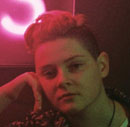 When Susan Donaghy stepped into the sizeable boots of Susie Blue, it was a license to be fearless, a bold singer, a provocatrice. This was her imprint on a series of important songs, setting out the unfinished mission for rights in the north. Susie Blue (“a boi named Sue) has the smarts, the presence and a voice that tells you quietly, but convincingly, that change will come.
When Susan Donaghy stepped into the sizeable boots of Susie Blue, it was a license to be fearless, a bold singer, a provocatrice. This was her imprint on a series of important songs, setting out the unfinished mission for rights in the north. Susie Blue (“a boi named Sue) has the smarts, the presence and a voice that tells you quietly, but convincingly, that change will come.
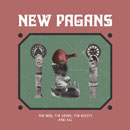 My phone tells me, by way of an intrusive screeching ping, that I have memories I must attend to. Memories are a weird thing, some positive, some not so positive. Memory can be divisive. Different versions of the same memory can weave their way through a close-knit group; memory can be unifying; it can be celebratory and perhaps a cause for anguish. There are whole books, thesis, and countless papers on memory.
My phone tells me, by way of an intrusive screeching ping, that I have memories I must attend to. Memories are a weird thing, some positive, some not so positive. Memory can be divisive. Different versions of the same memory can weave their way through a close-knit group; memory can be unifying; it can be celebratory and perhaps a cause for anguish. There are whole books, thesis, and countless papers on memory.
Or the lack thereof.
This particular digitally enhanced memory appeared because one year ago, to the day I had posted about an upcoming gig in the great Northern city of Manchester.
Manchester is only 30 minutes away from Liverpool by train, making it great for work, gigs, and pints. This memory though, of a gig in the Northern Quarter, strikes a peculiar chord because it was the last gig I have any memory of.
In the before times.
There *may* be another one, possibly in Liverpool, but it hasn’t registered in my memory yet nor has it set my phone off in search of high-pitched screeching noises.
That gig was New Pagans in a strange little place called Off The Square. If I’m honest I was a little surprised they’d set off on a UK tour, given that there was barely an EP on the go, mostly because hours can be bloody expensive things. It has to be said, I’m glad they did.
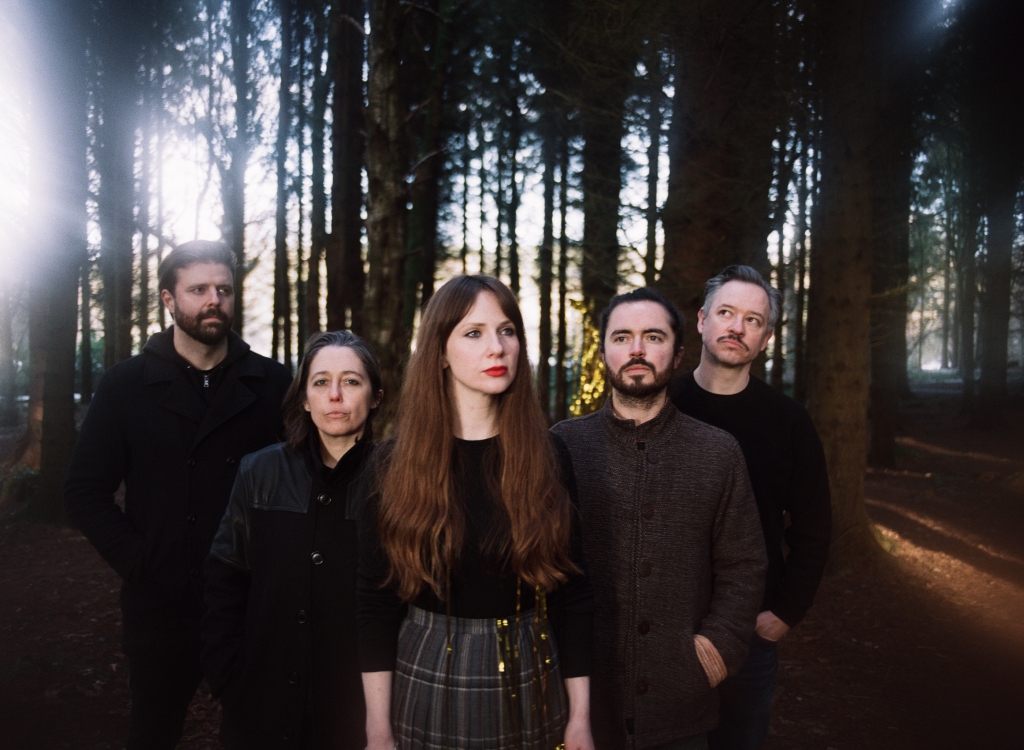
New Pagans by Aaron Cunningham
I’d seen them only once previously, at the Atlantic Bar in Portrush as part of the Atlantic Sessions festival. Their energy, sound and sheer presence on stage was more than enough to warrant a train trip on a chilly Winter evening.
It has been quite the year in between; apart from all the you know what; New Pagans have managed a few releases, some online gigs, they’ve won an award in the shape of the Best Live Act gong at the 2020 NI Music Awards. They’ve signed to Oxford-based label Big Scary Monsters too, home to Beach Slang, Gender Roles, Orchards, Single Mothers, We Were Promised Jetpacks and fellow nordies And So I Watch You From Afar.
A fitting home you might say.
Their album is a welcome addition to the list of releases and shows.
The Seed, The Vessel, The Roots and All comes out of the speakers like some demented animal, there is a darkness from the off, the bass thunders through your very DNA, lifted only by Lyndsey’s vocal and the harmonies, but ‘It’s Darker’ is an opening statement that is relentless in its demands for attention.
‘Bloody Soil’ does something that is difficult to pull off on a Tuesday evening while you’re sat on Penny Lane, it pulls at the end of your nerves, it forces movement, it has as jittery energy all of its own that fires neurons off each other, quickens the pace. ‘I Could Die’ slows things down a little, giving Lyndsey a little room to play around with speed and scale.
‘Lily Yeats’, a tale about the embroidering sister of WB Yeats, brings you back up again with a start; Cahir makes a more prominent appearance; it ends in a cacophony of noise. I’m reminded of Jetplane Landing, FWW and glorious nights in sweaty basements, pint in hand, throwing myself around the room lost in feedback and frenetic fury.
‘Admire’ grows on you; it grows out of the speakers demanding a little more room with each note until it fills the space, it’s the kind of tune that conjures up an image of Lyndsey writhing around on the floor lost in a sea of hair and darkness, it’s a beautiful thing.
‘Habour’, about motherhood and birth, is a little gentler on the soul, it is almost playful; reminiscent of a soundtrack where our imaginary heroine and her comrade in arms disappear over the horizon to the sounds of repetitive, almost prayer-like incantations that suggest impending trouble.
‘Yellow Room’ gives off a slightly confusing if not un-entirely enjoyable vibe that is part New Pagans, part Beach Boys; it’s all harmonies, catchy vibes and drum fills pulling you in until you can’t remove yourself from its grip. ‘Ode to None’, I’m sorry to say, is both “shimmering” and “angular”, though I am to understand those words have been banned by certain parties. It is both of those things though, there is just enough speed to keep you air drumming, but it comes tied to a huge sound that occasionally drops off to what can only be described as a sound that is very churchy, very preacher-like.
The final two tracks play around with your sense of place and the things your parents told you, ‘Natural Beauty’ plays with notions of femininity, it plays with gender chores and draws you into a narrative that presses delete on it.
‘Christian Boys’ carries more anger than the others; it hits harder, it punishes the amps, punishes the unprepared listener; like all the tracks on the record, there are stories, deep dark places that some of us might be best to avoid altogether. Christian Boys is written in the roots, and it shows, there is little ambiguity and lots of anger and alienation.
Glorious stuff.
New Pagans have seemingly come from nowhere in a time of great turmoil and tumult; in a time where many others have pulled the plug on plans, presses and publicity; they’ve gathered a clan that boils over with contempt, a clan laced with resentment, visceral and seething at the world it sees.
Perfect timing if you ask me.
Chris Flack
A version of this review will appear in Issue 4 of Dig With It print magazine, out March 26. Sales info here.
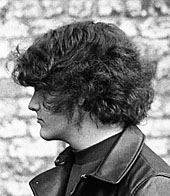 “I hear them say, get out of their country
“I hear them say, get out of their country
From the same ones who owe us six counties
I don’t remember a witch hunt for Kneecap
Course not – ’cause they’re not fuckin’ black.”
Enola Gay – ‘Birth of a Nation’
An intense song came out of the Black Lives Matter demonstrations in Belfast last June. Hundreds of protesters made their case at Custom House Square on June 6. The public space was marked out in socially distanced boxes but still the law handed out fixed penalty tickets and Community Resolution Notices. The mood was a composite of rage and frustration. Three days before, a crowd had gathered outside the City Hall with the same intent. On both occasions a BLM refrain had been raised: “there ain’t no black in the Union Jack”. Video clips were swiftly dispatched on social media and due uproar followed.
And so Enola Gay wrote about the many contradictions of the moment. They considered the patriotic backlash and the raw grievances. They sang about George Floyd and the distress of Irish history. They were furious that a poet with South African roots, living in Portadown, should have been demonised for her words while a hip hop crew from West Belfast could say the same thing with little censure. Their new song was called ‘Birth of A Nation’. It was quite something. Spirit of Chuck D, fury of Zack de la Rocha plus strains of inflammable Irish punk. Guitarist Joe McVeigh explains:
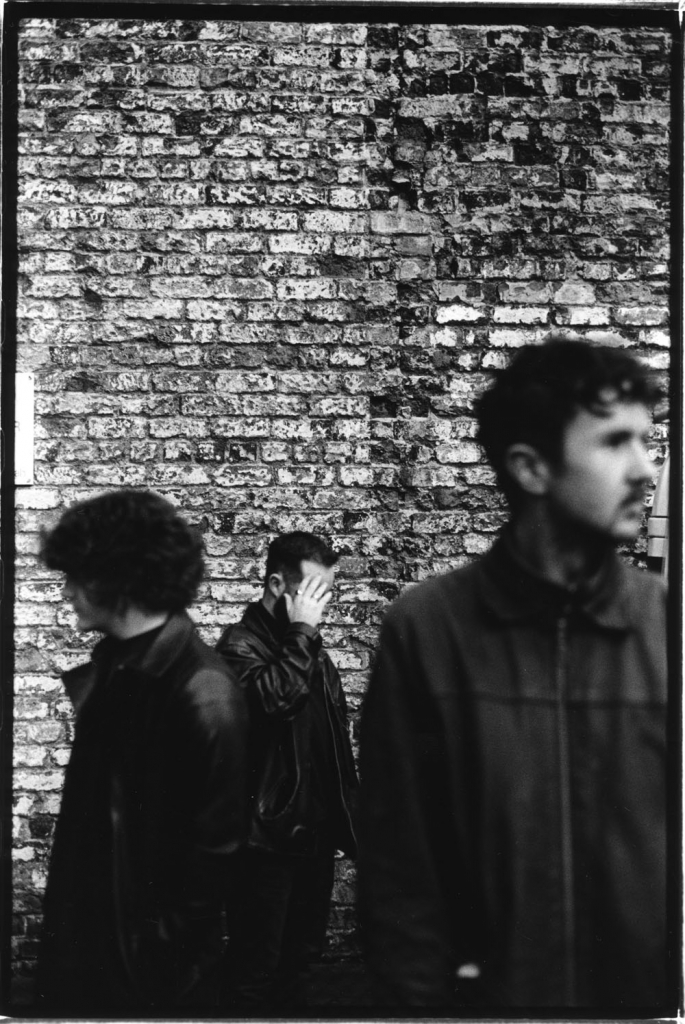
Enola Gay by Stuart Bailie
“That song originated from the City Hall protest. A friend of mine was filmed, sharing her experiences as a young black woman growing up here. This video was then cut down and it was spread about by hate groups. All they cared about was that line about the Union Jack. They didn’t care that she had been raised around this environment that made her feel unwelcome. She was vilified online and it was at that moment I thought, I wanna write about this.”
“It was written out of frustration,” says vocalist Fionn Reilly.
Joe: “As Imelda May said, perfectly, you don’t get to be racist and Irish.”
Even more contentiously ‘Birth of a Nation’ had stolen its title from the 1915 film by D.W. Griffiths. The title for America’s first film feature had originally been The Clansman. It was a depiction of the Civil War, the Reconstruction and the Ku Klux Klan.
Joe: “It’s drawing a parallel between how media was portraying things. How it doesn’t really ask questions. They were portraying black males as thugs. And that was just echoing the plot of that film. A film that was made over a hundred years ago. The President at the time (Woodrow Wilson) had a private screening in the White House. And then a hundred years later, you had President Donald Trump telling white supremacist groups to stand back and stand by, when asked to denounce them. So it just echoed so much. It’s drawing that parallel on so many levels.”
Fionn: “It’s also drawing parallels with Irish culture. Showing solidarity with the movement.”
Joe and Fionn first met properly at a Chemical Brothers gig in 2016. They talk earnestly about “being honest with yourself”. Fionn speaks less but with weight and emphasis. Joe has the riffs, the concepts and the method. He recalls that the early band get-togethers were all about determination and self-reliance.
“That was the main thing. We were, ‘let’s do stuff that we would actually want to listen to’. This is basically life advice, but to be as authentic as possible. Not everybody’s gonna like that, but you do. You just put a mirror up to yourself and everything around you. Try to do something different. You know what I mean?”
They say they have tried to fetch some positives out of the lockdown experience. They’ve been testing out new “sonics” and equipment. They enlisted a new bass player, Adam Cooper, last May. They’ve been thinking hard about rebellious acts that have been tamed and “pigeonholed” and want to avoid those historic mistakes. But still, their admiration for Dublin’s Girl Band is absolute.
“Look at all the bands,” Joe says. “The Fontaines, Just Mustard, The Murder Capital – even Idles said it themselves. The first time you hear it, it just hits you in the face. Their debut album, I would say it is one the same level as Nirvana’s In Utero, in terms of just a raw reflection of someone’s mental health, just being against the wall. You just hear it. It’s like nothing you’ve ever heard before.”
Let’s talk about the band name Enola Gay, then. The name of the B-29 US Superfortress Bomber that dropped the atomic bomb on Hiroshima in 1945, killing upwards of 70,000 people. Also the theme of a strangely haunting synthpop song by Orchestral Manoeuvres in the Dark in 1980. So what gives exactly? Joe takes a breath.
“The name Enola Gay, that’s a big deal. When I was a kid my mum would be driving me to primary school and she had this 80s mix tape. And OMD would always come on. I would always skip to it – for what I thought was a very uplifting and joyous synth line. It wasn’t until I was older that I found out what Enola Gay actually was. That I was having this social commentary on one of mankind’s biggest atrocities. It just really struck me. And it’s that conflict on an emotional and visceral level that has worked its way into our music. Time and time again. I try to get that deeper meaning to motivate me as a songwriter. To have that deeper meaning.”
The band has been party to a techno remix from Mount Palomar and they’re preparing new releases such as ‘Sofa Surfing’ and ‘Through Men’s Eyes’. The latter song relates to a notorious rape trial and the rage is evident. Once more, Joe takes the lead with the explanation. “It’s not just an anti-rape song, it’s an anti-system song. It’s an anti-lad culture song. It’s striking the problem from its core. Which is men.”
Another challenge is to sustain the musical pressure during fractious times.
“We have a lot done. A lot of songs. And we’re proud of every single one of them. When this all does blow over, we put our foot down.”
Stuart Bailie
Enola Gay feature in the sxsw online programme on March 17. More info here.
A version of this feature will appear in Issue 4 of Dig With It print magazine, out March 19. Sales info here.
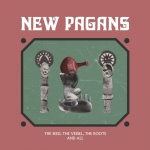 By Lyndsey McDougall
By Lyndsey McDougall
I have always felt an affinity with songs that reference motherhood, both its absence and presence. I knew I wanted to have children at some point in my life and at times this dominated my thoughts. It also influenced the decisions I made about my future, relationships and creative practice. The primal urge of wanting to be a mother consumed and terrified me for years.
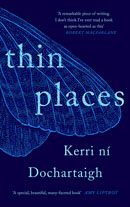 Genre categorisations are probably helpful to those who market books. They are helpful, sometimes, to readers. They are not so helpful to those who have to review books which exist between genres, as is the case with Thin Places, by Kerri ní Dochartaigh. But what else would we expect from a story which is about existence in the thin places between hard definitions?
Genre categorisations are probably helpful to those who market books. They are helpful, sometimes, to readers. They are not so helpful to those who have to review books which exist between genres, as is the case with Thin Places, by Kerri ní Dochartaigh. But what else would we expect from a story which is about existence in the thin places between hard definitions?






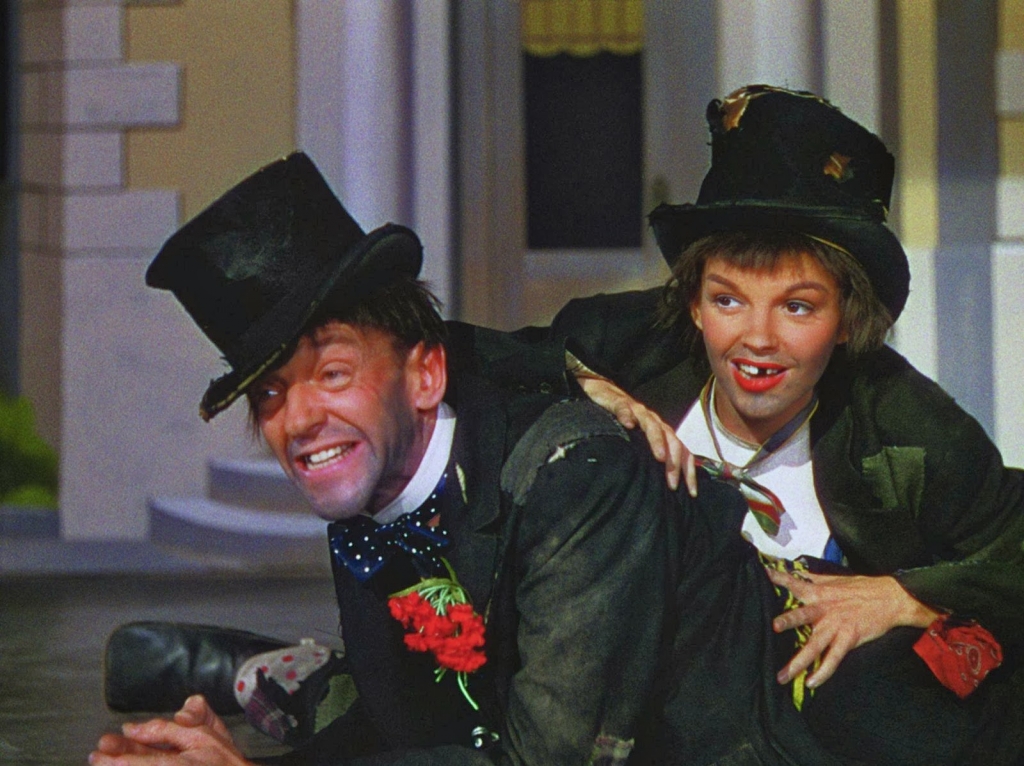

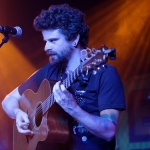



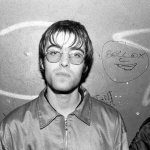
 Twitter
Twitter